Highlights
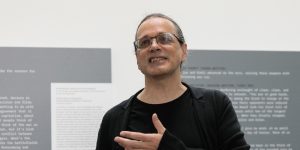
Welcome to the Ars Electronica Festival 2020
Gerfried Stocker, Ars Electronica's artistic director, welcomes you to the Ars Electronica Selection Channel. He'll give you a brief overview of what to expect at the Ars Electronica Festival from September 9 to 13, 2020.
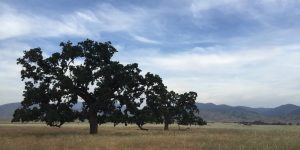
Keynote Lecture: Tree Conservation, Genomics, and Change
Victoria Sork: UCLA Dean of Life Sciences, Director of Mildred E. Mathias Botanical Gardens
Victoria Louise Sork is an American scientist who is a professor, the Dean of Life Sciences at University of California, Los Angeles, and a Fellow of the American Association for the Advancement of Science. In her keynote lecture that will open the five day long festival, she will discuss her research studying tree populations in California and the Eastern United States using genomics, evolutionary biology and conservation biology.

Guided Tour with Ticket - Kepler's Garden on JKU Campus
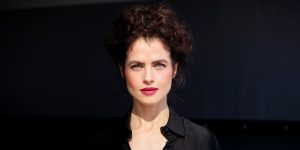
Key Note: Neri Oxman
A multi-disciplinary designer, Oxman founded The Mediated Matter Group at the Massachusetts Institute of Technology in 2010 where she established and pioneered the field of Material Ecology, fusing technology and biology to deliver designs that align with principles of ecological sustainability. Oxman became a tenured professor at MIT in 2017.

Visitor Slot - Kepler's Garden on JKU Campus
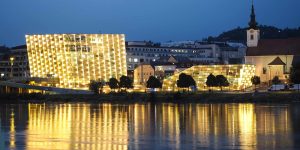
Ars Electronica Center
at the 2020 Ars Electronica Festival
Located on the northern bank of the Danube, the striking architecture of the Ars Electronica Center has been shaping the Linz cityscape since 2009. During the festival, Ars Electronica's headquarters will be presenting several exhibitions, OpenLabs, guided tours of the adjacent Ars Electronica Futurelab and a comprehensive program of presentations in Deep Space 8K.

Demystifying AI with Music
Roberto Viola (IT), Elaine Chew (US/UK), Patrick van der Smagt (DE), Matthias Röder (DE)
What could be the role of AI in music then? The conversation will reflect on these questions also in the light of a European vision on ‘trustworthy AI’.
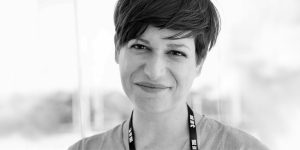
Key Note: Lorena Jaume Palasì
Founder of The Ethical Tech Society. Her research focuses on the ethics of digitalization and automation and, in this context, on questions of legal philosophy. 2017 Appointed by the Government of Spain in the Council of Eminent Persons on Artificial Intelligence. Former member of the High Level Expert Group on Artificial Intelligence of the EU Commission. 2018 Theodor Heuss Medal "for their contribution to a differentiated consideration of algorithms and their mechanisms of action" with the AlgorithmWatch initiative.
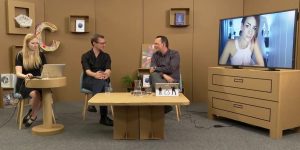
Ars Electronica Futurelab Creative Question Challenge: Art – Science – Innovation
Why should art and science be brought together when thinking about innovation?
The CQC brings together two speakers from different disciplines and backgrounds and a facilitator – called Catalyst – to create questions for the world to ponder within a 30-minute time limit.
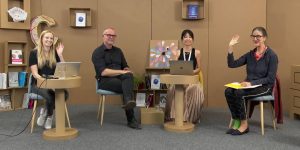
Ars Electronica Futurelab Creative Question Challenge: Art – Education
What is the Future of Art in Education?
The CQC brings together two speakers from different disciplines and backgrounds and a facilitator – called Catalyst – to create questions for the world to ponder within a 30-minute time limit.
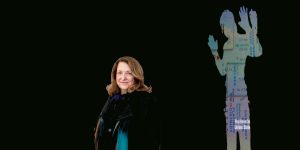
Key Note: Lynn Hershman Leeson
Lynn Hershman Leeson (US)
For over fifty years, Hershman Leeson’s practice mines the intersections of technology and the self. She is known for her groundbreaking contributions to media art from Artificial Intelligence to DNA programming, often anticipating the impact of technological developments in society.
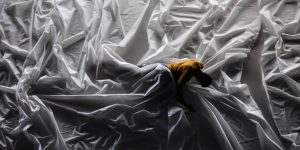
DARV_ Abandoned Land
Lee Jung In (KR/AT) Mihaela Kavdanska (BG/RO/AT) Violeta Ivanova (BG/AT) Florian Weinrich (AT)
DARV_ Abandoned Land is an intermedia dance performance which sprouts connections between analog and digital. The performers interact with large-scale objects and video projections, resembling the endless migration from one world to another in search for the better. The DARV team and eight dancers perform in various locations in Austria, South Korea and Bulgaria, guiding the audience through dystopian realities and abandoned sites. Drained-off utopias, failed social mechanisms and ideologies are embodied, explored and ultimately abandoned.
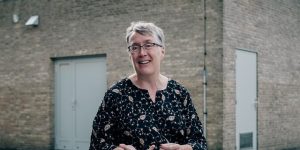
Key Note: Joanna Bryson
Joanna Bryson
Joanna Bryson is Prof. of Ethics and Technology at the Hertie School. Her research focuses on the impact of technology on human cooperation, and AI/ICT governance. From 2002-2019 she was on the Computer Science faculty at the University of Bath. She has also been affiliated with the Dpt. of Psychology at Harvard University, the Dpt. of Anthropology at the University of Oxford, the School of Social Sciences at the University of Mannheim, and the Princeton Center for Information Technology Policy
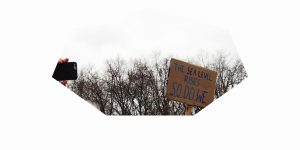
Creative Question Challenge: Radical change by working together
Kat Austen (UK/DE), Indrė Žliobaitė (FI), Laurence Gill (IE), Andrew Newman (AT/AU)
'Let us finish what we started'. This is how the UN introduces its first Sustainable Development Goal - to end poverty in all forms and dimensions by 2030. The 17 Sustainable Development Goals and their 169 targets have been described as a sprawling, misconceived mess of grandiose intentions. The title of the development agenda itself - 'Transforming our World' - oozes utopian ambition. It was adopted by 193 nations in 2015. Five years later and with ten years left, how do you think our world will transform?
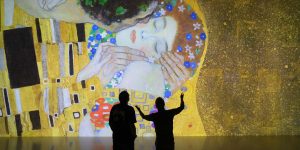
Gustav Klimt's "Kiss" as Gigapixel - On the Cooperation between Google Arts & Culture and the Belvedere in Vienna
Belvedere, Franz Smola (AT)
At the presentation initiated by ARS Electronica, experts from Google Arts & Culture will explain the technology of the Art Camera and its application in cooperation with museums worldwide in a vivid way. Belvedere curator Franz Smola, responsible for the scientific expertise and supervision of the project, will also explain the art historical aspects of Klimt's painting "The Kiss".

2020 - Finally Digital?!
Christina Steinbrecher-Pfandt (US), Renger van Den Heuvel (NL), Sabine Himmelsbach (DE/CH), Nanne Dekking (US/DE), Alain Servais (BE), Paul Frey (AT), Alfred Weidinger (AT), Casey Reas (US), Kate Hollenbach (US), JiaJia Fei (US), Raina Mehler (US), Magda Sawon (US), Sharon De Mattia (US) and Thomas Kohler (DE)
2020 started with a bang that made the art industry pivot away from its established codes of conduct almost overnight for sheer survival. From the exchange of courtesies to remote work structures, old customs required immediate redesign in response to the crisis. As a result, the online space gained even more significance as the only platform for business and commercial transactions, affecting even the art industry and its age-old reliance on in-person interaction.
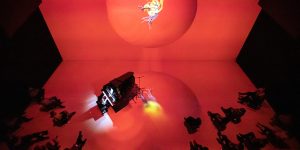
Pianographique
Maki Namekawa (JP/AT), Cori O'Lan (AT)
Philip Glass' piano solo piece Passacaglia: After a tranquil opening, we break into boiling and purely pianistic passages of arpeggios and scales. Philip Glass' trusted pianist Maki Namekawa (who has premiered several of his piano pieces) performs this work in its Austrian premiere.
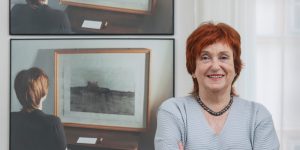
Prix Forum Visionary Pioneer of Feminist Media Art
The director of the VALIE EXPORT Center Linz, Dr. Sabine Folie, gives a talk about the achievements of VALIE EXPORT, which is followed by a talk of VALIE EXPORT herself.

Ars Electronica Reception
Presentation of two GOLDEN NICA’s of the Prix Ars Electronica in the categories "Pioneers of Media Arts" and "u19–create your world.
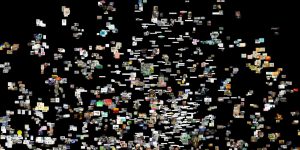
Networked Archives
Oliver Grau (DE), Dagmar Schink (AT), Christiane Paul (DE/US), Mariano Sardón (AR), Rafael Lozano-Hemmer (MX/CA), Manuela Naveau (AT)
Panel - In a world in which we increasingly rely on online content, media art archives and platforms are no exception. The Networked Archives panel addresses their role in making media art accessible online, and highlights various approaches to the field. As archives and metadata are central issues and the base for the digital content sector they are evolving into important online value chains. How can archives be monetized, contribute to the developments in the media art markets and form base for online platforms?


